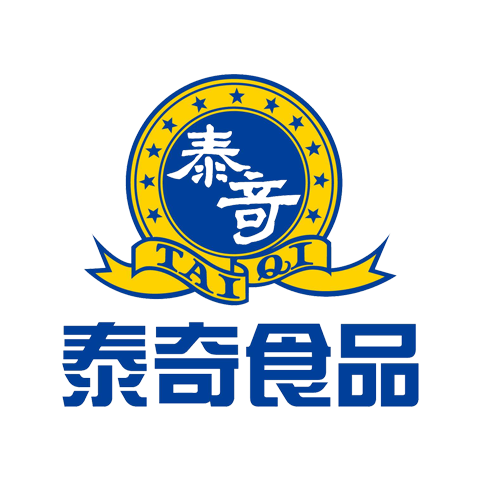Founded in 1992, Guangzhou Taiqi Food Co., Ltd. has been focusing on the "0" addition process for many years, without adding preservatives and food additives, and insisting on using natural ingredients for Babao porridge raw materials. Because of its stable production and good reputation, Taiqi has become a trusted brand of consumers in South China, Hong Kong, Macao and Taiwan in the ever-changing competition of canned food market.
In 1997, the "Money for Trouble" campaign prompted supermarkets to sell out of their eight-treasure porridge and boosted sales of 50 million. After the turn of the millennium, Taiqi Babao Porridge quickly occupied the Babao Porridge market in South China with an average annual growth rate of 30% for 7 consecutive years (2002-2008).
In 2012, the Taiqi food production base costing hundreds of millions of yuan was completed and put into operation, with 3 fully automatic production lines, with an annual output of 500 million to 700 million cans, from raw material screening, pretreatment, filling and sterilization, packaging, etc., it is the leading eight-treasure porridge production base in South China. However, the Taiqi factory is located in Guangdong, mainly focusing on the local market, and its performance in the market outside of South China is weak, and it cannot compete with enterprises with developed channels such as Yinlu.
Tage's insistence on "0" addition also indicates that Tage rejects all non-calorie sweeteners such as acesulfame potassium and only uses natural white sugar, which is not friendly to people who need to control sugar.
There are only a few kinds of Taiqi eight-treasure porridge, but each has its own merits, and 8 kinds of ingredients from all over the world are integrated into the jar to achieve diversification of ingredients. The entwining of red beans and mung beans, the delicious elastic teeth of longan, the charming fragrance of lotus seeds, and the sticky taste of glutinous rice and wheat kernels create a sweet and delicious eight-treasure porridge. The traditional and classic lotus seed longan flavor eight-treasure porridge has the most fans, and the raw materials are controlled and restrained, except for the sugar water, there are only 8 kinds of ingredients, which can better mobilize the flavor of different ingredients and make the porridge delicate and smooth. The biggest difference between red bean fragrant sand eight-treasure porridge and kelp horseshoe eight-treasure porridge is the taste, the former focuses on the charming sweetness of red beans and silky, while the latter does not have red beans, instead of water chestnuts (water chestnuts) and kelp, the taste is more refreshing, and it is a good dessert to cool off.
It is worth noting that the standard 370g comes with a two-fold spoon, which is placed in the lid of the can, with a smooth edge but significantly shorter than the depth of the can, so it is inevitable that your hands will get dirty during the process of drinking eight-treasure porridge. The large 430-gram can is sufficient, and the spoon is upgraded to a straight long spoon, which is attached to the side of the can, making it more convenient to eat. The standard size is 370 grams, each priced at about 5.5 yuan, and at present, only lotus seed longan flavored eight-treasure porridge has an additional large canned 430 grams, which meets the needs of consumers with a large appetite, and the price is 1 yuan more expensive.
In recent years, Taiqi has also launched a new type of sweet porridge - purple potato porridge and corn porridge, less than 8 kinds of materials, strictly speaking, it does not belong to the category of eight-treasure porridge, but the purple potato aroma is tangy, the corn kernels are sweet, and you can feel the moisturizing heart and spleen between the throat when you open the can, which is very popular with consumers. These two products are affordable, with 370 grams costing around 5 yuan.
- Related rankings
-
- melon seeds
- biscuit
- candy
- Chocolate confectionery
- Wafer biscuits
- Toughness cookies
- dark chocolate
- potato chip
- Spicy strips
- Ham sausage
- Zongzi
- Mooncakes
- Sandwich biscuits
- egg roll
- can
- Wrap stinky tofu
- Crispy biscuits
- Jelly pudding
- Soda crackers
- Nut snacks
- Shaqima
- instant noodle
- pistachio
- chewing gum
- Ice cream ice cream
- Ready-to-eat seaweed
- Canned dace
- Canned luncheon meat
- Canned delicatessen
- Canned abalone
- Canned fruit
- Canned tuna










